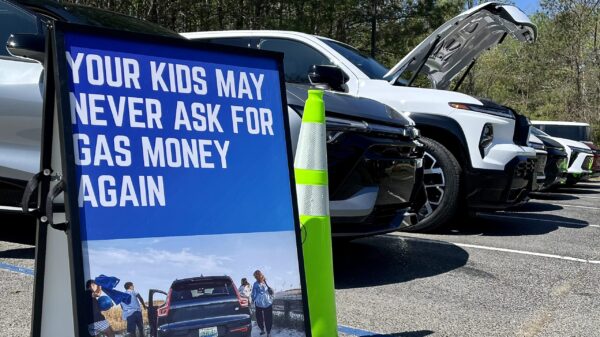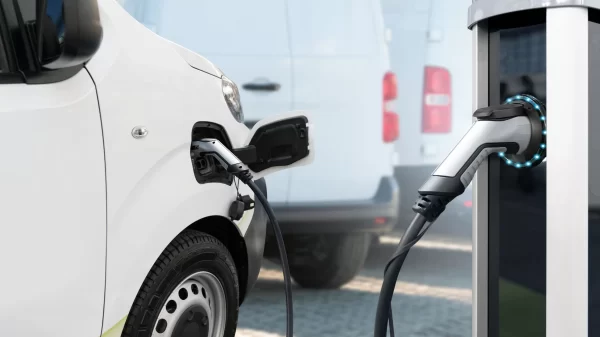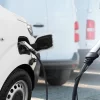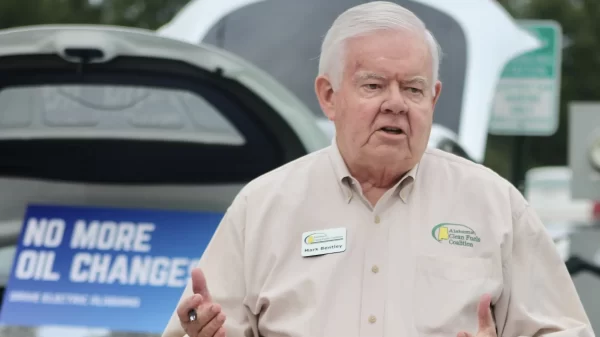Photos of a smogless Los Angeles skyline set against a brilliant blue sky have emerged as an iconic image to showcase the impact of decreased air pollution during America’s COVID-19 quarantine.
Similar photos from around the world, including what are usually smog-filled cities in India, China and Europe, provide a glimpse of a world with improved air quality.
It’s no secret that poor air quality has historically been caused by traffic, but due to tighter regulations by the federal government, industries’ contribution to pollution has decreased significantly. Scientific research is beginning to show how social distancing measures and stay-at-home orders have created an unintended consequence of improving worldwide air quality.
For nearly two decades, the Alabama Clean Fuels Coalition has been advocating to improve Alabama’s air quality by increasing the use of cleaner alternative fuels and expanding the market for advanced technology vehicles. Cleaner burning alternative transportation fuel options like biodiesel, ethanol, propane and natural gas also reduce pollution just like electric vehicles.
Air pollution remains a global public health crisis, as the World Health Organization estimates it kills seven million people worldwide annually.
But is the COVID-19 pandemic showing us the wisdom of transitioning to cleaner vehicles, whether electric vehicles with drastically lower emissions or vehicles using cleaner-burning alternative fuels? The answer is an emphatic yes.
Recent research shows global carbon dioxide emission had fallen by 17 percent by early April when compared to mean 2019 levels. In some areas, including the United States and the United Kingdom, emissions have fallen by a third, thanks largely to people driving less, according to research published in Nature Climate Change.
Numerous organizations, including NASA, continue to study the environmental, societal and economic impacts of the pandemic, and researchers view recent air quality gains as promising evidence that the use of alternative vehicles could have long-term positive impacts.
“If I could wave my magic wand and we all had electric cars tomorrow, I think this is what the air would look like,” Ronald Cohen, a professor of atmospheric chemistry at UC Berkeley who studies the effects of the stay-at-home orders on air quality, told the Los Angeles Times.
Wider use of electric vehicles and the other domestically produced alternative fuels would lessen America’s dependence on foreign oil while also helping our environment. Poor air quality already causes negative consequences for millions of Americans.
Alabama could also see economic benefits from increased production of electric vehicles, with Honda, Hyundai and Mercedes-Benz operating plants in the state and working hard to produce the next wave of electric vehicles. As part of a $1 billion investment in Alabama, Mercedes began construction of a high-voltage battery plant in Bibb County in 2018 for its all-electric EQ brand of vehicles, as well as batteries for its hybrid plug-ins.
“This is a teaching moment,” Viney Aneja, an air quality professor in the Department of Marine, Earth and Atmospheric Sciences at North Carolina State University told the Raleigh News and Observer. “We should learn from it. We should promote behavior that will allow air quality to be as good as it is outside right now.”
This is a prime opportunity for America to embrace alternative and cleaner-burning transportation fuels, as well as electric vehicles, while also decreasing reliance on foreign oil and creating jobs here at home.
It could also make those picturesque photos of the big-city skylines become commonplace instead of a rarity.
Mark Bentley has served as the executive director of the Alabama Clean Fuels Coalition since August 2006.
Phillip Wiedmeyer serves as the Alabama Clean Fuels Coalition’s chairman of the board of directors and president and is one of the ACFC’s original founders. He also serves as the executive director of the Applied Research Center of Alabama, a non-profit dedicated to public policy issues impacting Alabama’s growth, economic development and business climate.
About the Alabama Clean Fuels Coalition
Alabama Clean Fuels Coalition serves as the principal coordinating point for clean, alternative fuel and advanced technology vehicle activities in Alabama. ACFC was incorporated in 2002 as an Alabama 501c3 non-profit, received designation U.S. Department of Energy’s Clean Cities program in 2009 and was re-designated in 2014. A national network of nearly 100 Clean Cities coalitions brings together stakeholders in the public and private sectors to deploy alternative and renewable fuels, idle-reduction measures, fuel economy improvements and emerging transportation technologies. To learn more, visit www.alabamacleanfuels.com.



















































